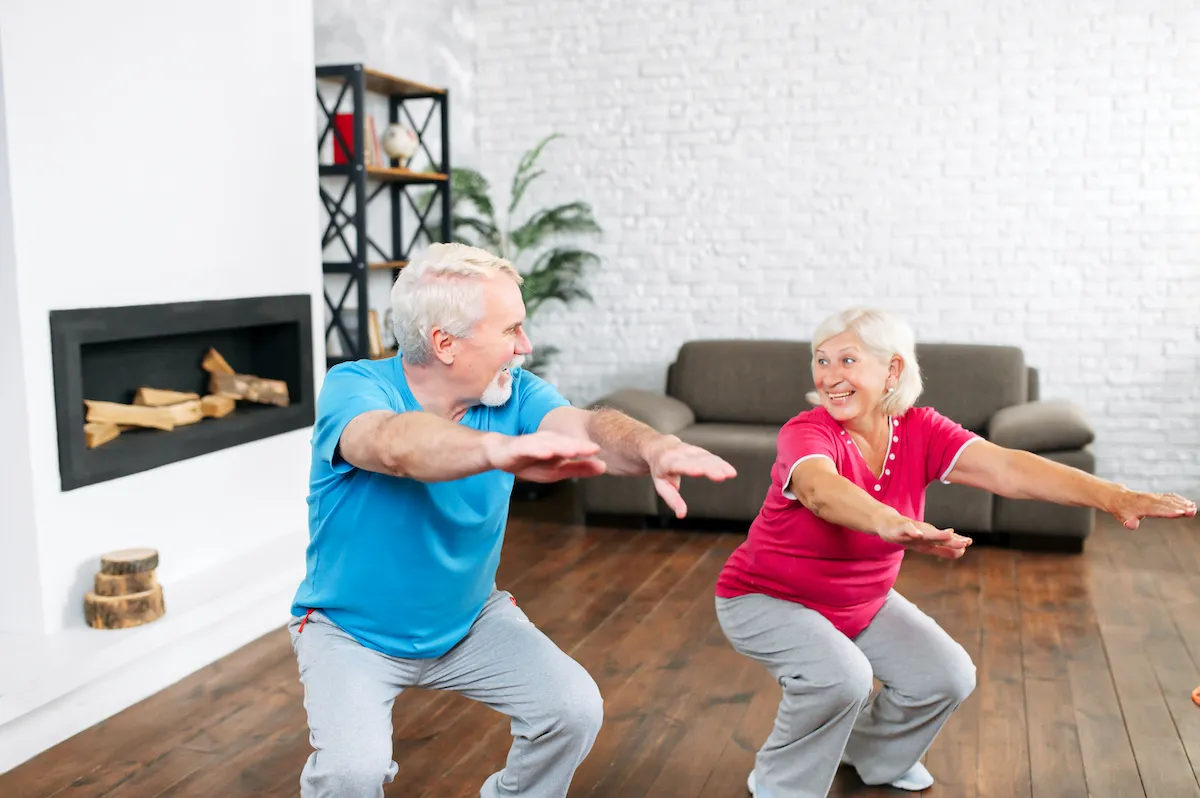One Ugly Side Effect of Stretching Before Exercise, Says Science

For years athletes have been taught that performing static stretches (when you stretch and hold the pose for a period of time) before a workout is an essential part of vigorous physical activity. After all, anyone who has participated in high school sports—from football to basketball to running cross-country—knows that forming a stretching circle and running through static stretches is one of the first things you invariably do before every practice or competition.
However, a growing body of research is showing how our views of pre-exercise "static" stretching are changing in real time—while revealing many of the ugly truths about stretching when your body is "cold." Read on for some of the things that can happen if you stretch before exercise. And for more on when you should stretch, see here for the Side Effects of Not Stretching After Exercise, Say Experts.
Yes, You Could Hurt Yourself

"Recent expert opinion has moved away from static stretching before a sport or activity and more toward gradual warming," Michael Daignault, an emergency physician in Los Angeles and chief medical adviser for Reliant Health Services, recently explained to USA Today. "Furthermore, stretching a cold tight muscle could lead to injury itself."
Morit Summers, a personal trainer and founder of Form Fitness Brooklyn, was more blunt in her assessment of pre-exercise static stretching: "If you do a static stretch on a cold body, you can hurt yourself. You can tear a muscle," she told USA Today. And for more exercise advice, don't miss The Secret Exercise Trick for Getting Rid of Knee Pain, Says Top Trainer.
You May Lose Athletic Performance, Too

According to a study published in the journal Applied Physiology, Nutrition, and Metabolism, static stretching before exercise will actually hinder performance afterward. All told, the accumulated research says that the average performance decrease across strength, power, speed after performing static stretching comes to about 3-5%. And for more exercise advice can use starting ASAP, don't miss The Morning Exercises You Shouldn't Skip After Age 60, Says Science.
You Should Warm Up Before You Stretch

Now, I know what you're thinking: Isn't stretching a pretty low-risk thing to be doing? The answer, of course, is yes. If you're performing static stretches, it is, overall, a low-risk activity, and you'll lower the risk of injury if you simply listen to your body. If you're feeling pain, you're overdoing it.
But the leading health experts will tell you that it's smart to actually warm up before you stretch, whenever you're stretching. "It is very important that you perform the general warm-up before you stretch," write the experts at MIT. "It is not a good idea to attempt to stretch before your muscles are warm (something which the general warm-up accomplishes)."
One great way to do this is to take a short walk, jog, or do some jumping jacks. Another way to go is to perform dynamic stretching, where you perform gentler movements that mimic the exercise you're about to perform. For more on this, see the next slide.
This Is Your Ideal Pre-Exercise Warmup

According to William Kormos, M.D., Editor in Chief of Harvard Men's Health Watch, the better alternative to static-stretching before exercise is to go for the right warmup. "For example, instead of launching immediately into a brisk walk, spend five to 10 minutes taking a leisurely stroll with long strides, and then increase the pace gradually," he says. "Or when you begin exercising on a treadmill or other gym machine, start on a low setting. This will also allow your heart and muscles to respond gradually to the increased demands of exercise." And for more great exercise tips, see these Secret Tricks for Walking for Exercise, According to Walking Experts.








